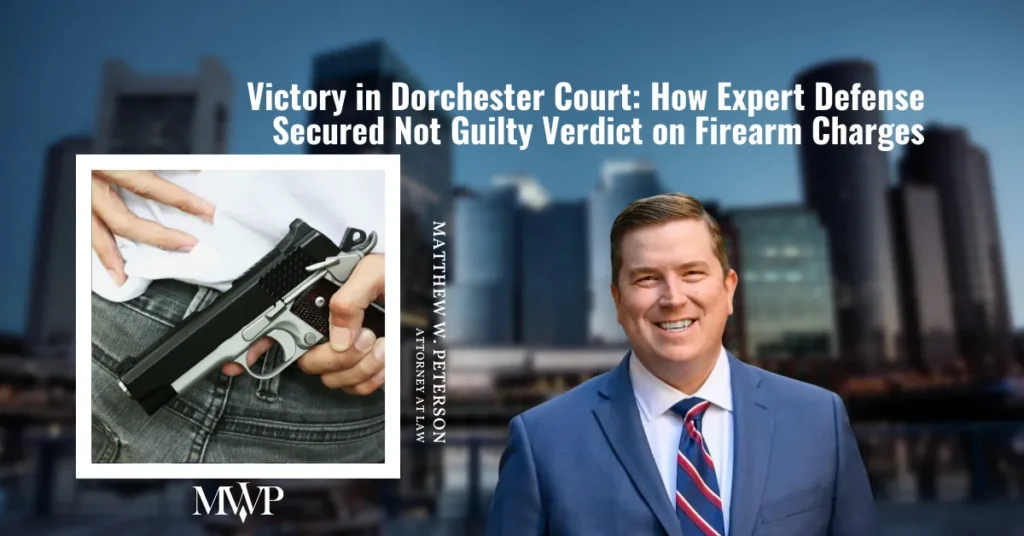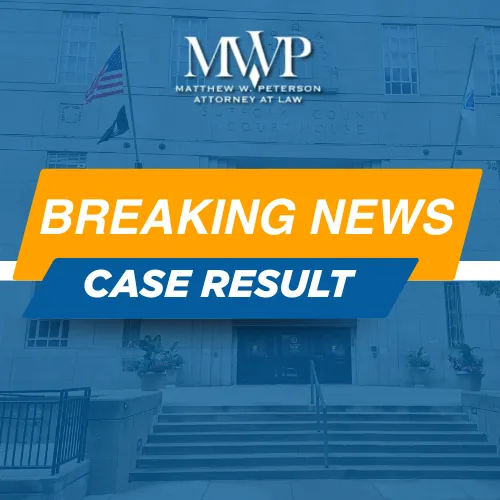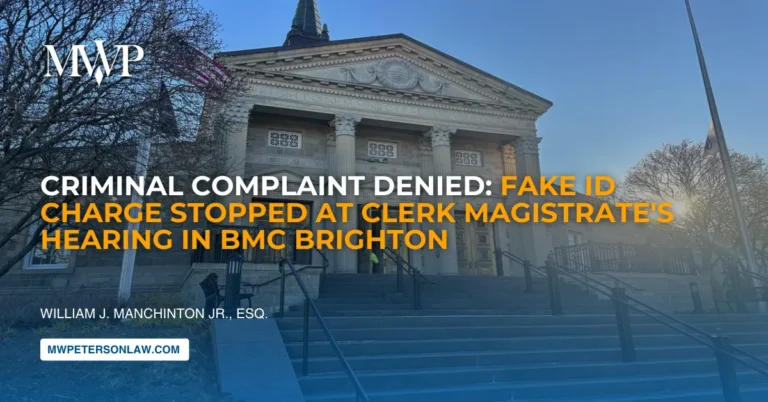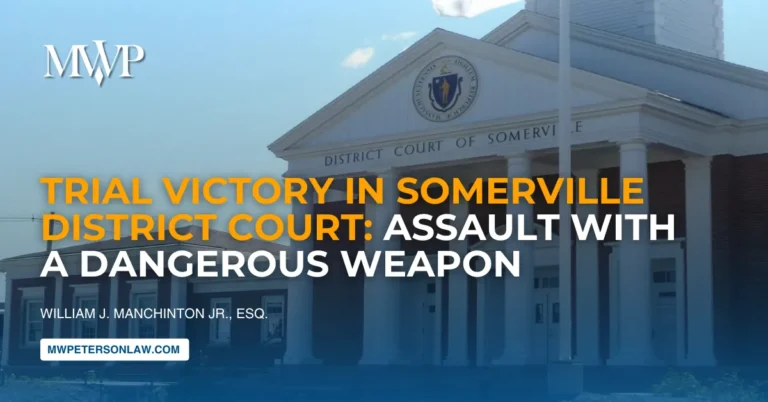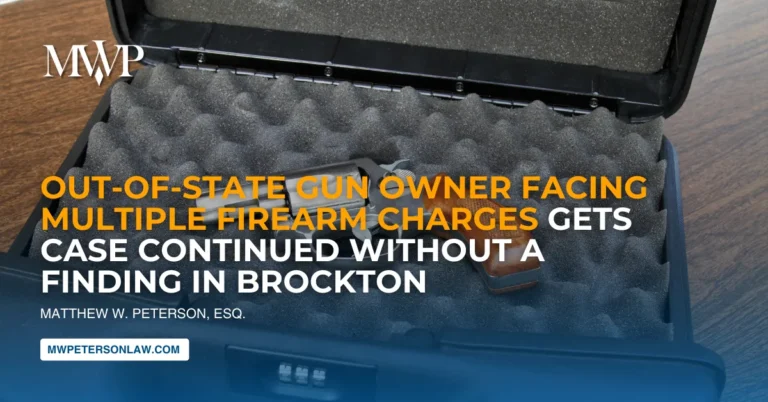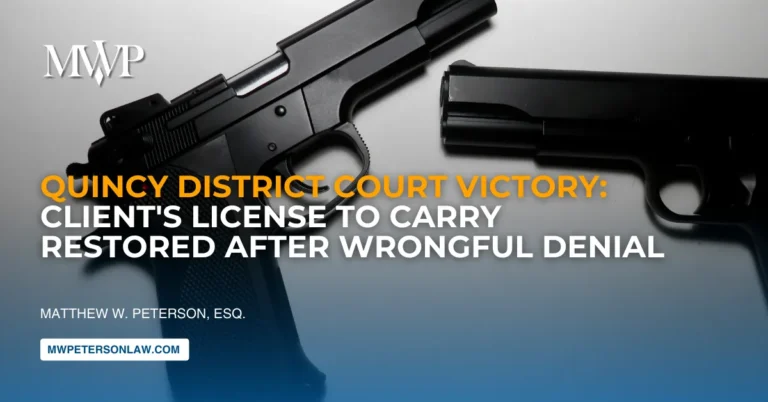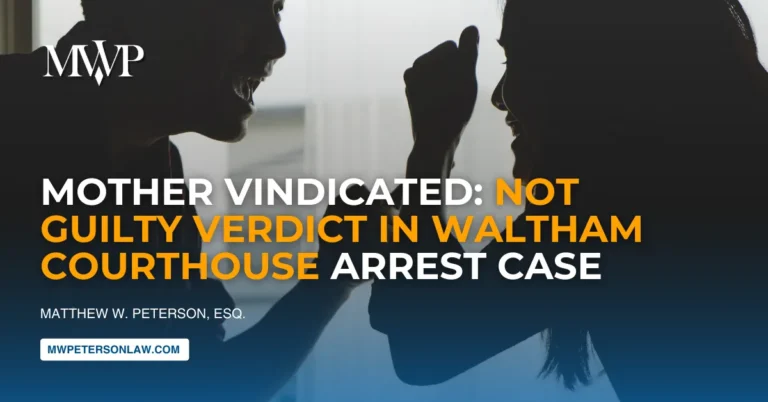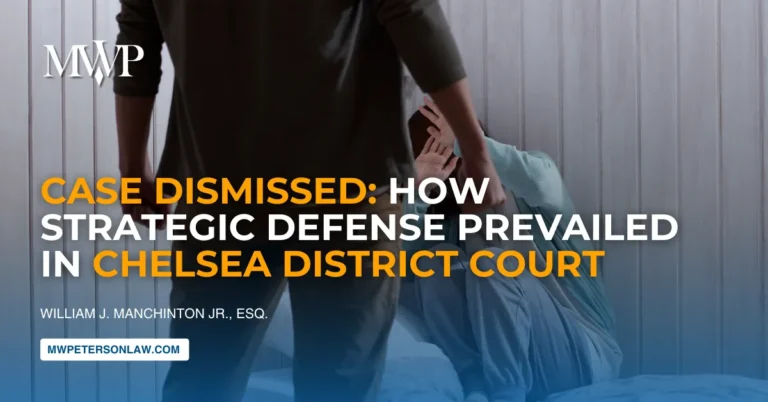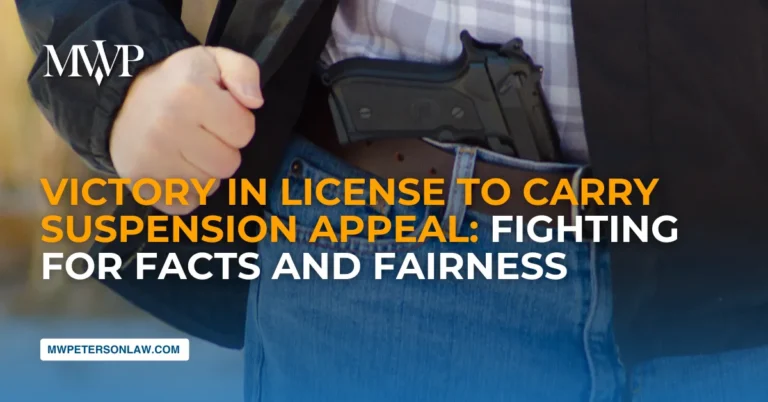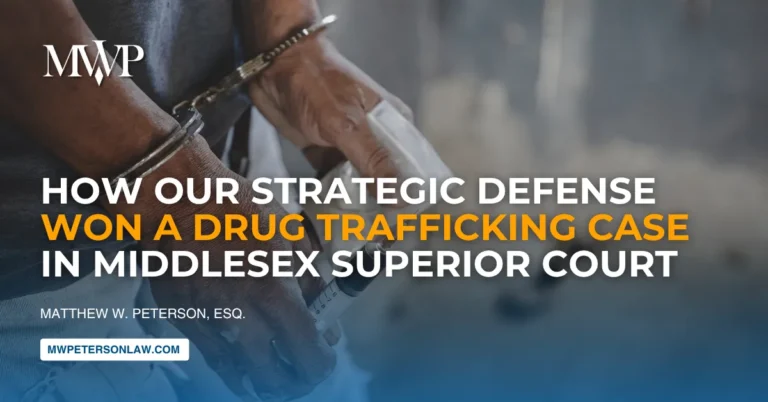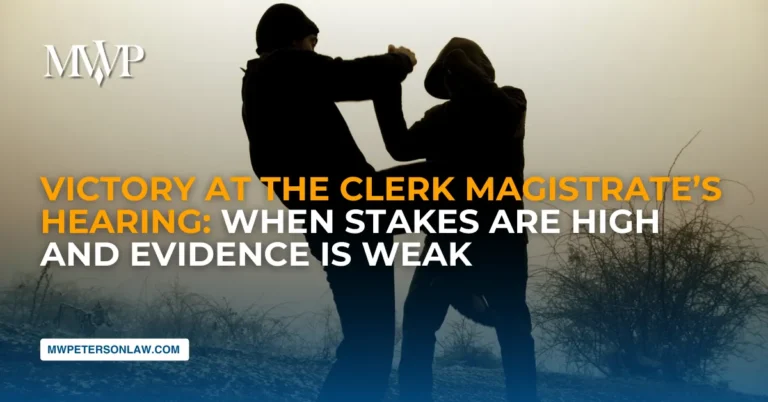Not Guilty Verdict On Firearm Charges In Dorchester Court
In the heart of Boston’s Dorchester division, a courtroom battle unfolded that would determine the future of one man accused of possession of a firearm without a license. The stakes were high, with an 18-month mandatory minimum sentence on the line. But thanks to the dedicated efforts of the Law Office of Matthew Peterson, justice prevailed.
This blog post will take you through the intricacies of this case, the defense strategies employed, and why having an experienced firearm defense attorney can make all the difference. If you’re looking for best attorney, contact the Law Office of Matthew Peterson today and take the first step towards safeguarding your rights and freedom.
The Case Unfolds
Accusations and Initial Charges
Several years ago, our client found himself entangled in a legal nightmare. Law enforcement officers claimed they found a gun in a bag inside a vehicle. They asserted that our client was seen near the vehicle, leading to charges of firearm possession without a license. Such charges carry severe penalties, including a mandatory minimum of 18 months in prison.
The Stakes
Facing an 18-month mandatory minimum sentence is daunting. For anyone, the prospect of spending over a year behind bars can be life-altering. For our client, this meant not only the loss of freedom but also potential damage to his reputation, career, and personal relationships. It was imperative to mount a robust defense.
Enter the Law Office of Matthew Peterson
Recognizing the gravity of the situation, our client sought the expertise of the Law Office of Matthew Peterson. Renowned for their prowess in criminal defense, especially in firearm-related cases, the team immediately set to work, scrutinizing every detail of the case.
Crafting the Defense
Challenging Identification
One of the first tactics employed was to challenge the identification of our client at the scene. Eyewitness testimony can be notoriously unreliable, and we aimed to sow doubt about the accuracy of the identification. By presenting inconsistencies and highlighting the lack of concrete evidence, we began to dismantle the prosecution’s narrative.
Questioning Evidence Ownership
The gun was found in a vehicle, but whose vehicle was it? We questioned the evidence linking our client to the ownership of the car. The prosecution’s case relied heavily on circumstantial evidence, and we aimed to show that our client had no knowledge of the gun’s presence in the vehicle.
Constructive Possession Argument
A key element of our defense was the argument of constructive possession. Constructive possession requires proof that the defendant had both the power and intention to exercise control over the firearm. We argued that our client neither knew about the gun in the bag nor was he present at the scene. This lack of direct control and knowledge was critical to our defense strategy.
Excluding Inadmissible Evidence
Identifying Excludable Evidence
Certain pieces of evidence were deemed inadmissible and should not have been presented to the jury. This included any tenuous connections between our client and the vehicle, as well as other irrelevant or prejudicial information.
Legal Maneuvering
Our legal team worked tirelessly to ensure that this inadmissible evidence was excluded from the trial. By filing motions and presenting compelling arguments, we aimed to protect our client’s rights and ensure a fair trial.
Jury Persuasion
With the inadmissible evidence excluded, the jury was left with a clearer, more accurate picture of the case. This was a pivotal moment in the trial, as it significantly weakened the prosecution’s arguments.
The Trial and Verdict
Presenting the Case
Throughout the trial, our team meticulously presented our case, challenging every piece of evidence and questioning every witness. The goal was to create reasonable doubt in the minds of the jurors, demonstrating that the prosecution had not met its burden of proof.
Jury Deliberation
After days of testimony and arguments, the jury retired to deliberate. The tension was palpable, as both sides awaited the verdict. However, the jury was only out for about 40 minutes.
Not Guilty
The jury agreed with our defense and found our client not guilty. This verdict was a testament to the power of a well-crafted defense and the importance of experienced legal representation.
Why You Need an Experienced Firearm Defense Attorney
Expertise Matters
Firearm charges are complex and carry severe penalties. An experienced firearm defense attorney understands the intricacies of the law and can identify weaknesses in the prosecution’s case. Their expertise can mean the difference between a guilty verdict and an acquittal.
Building a Strong Defense
A skilled attorney will meticulously build a strong defense, challenging evidence, questioning witnesses, and presenting compelling arguments. They know how to create reasonable doubt and persuade the jury to see the case from the defendant’s perspective.
Protecting Your Rights
An experienced attorney will ensure that your rights are protected throughout the legal process. They will fight to exclude inadmissible evidence, file necessary motions, and advocate on your behalf in court.
The not guilty verdict in the Dorchester Court case highlights the importance of expert legal representation in firearm charges. The Law Office of Matthew Peterson demonstrated how a well-crafted defense can dismantle the prosecution’s case and secure justice for the accused.
If you or someone you know is facing firearm charges, don’t leave your future to chance. Reach out to an experienced firearm defense attorney who can provide the expertise and dedication needed to secure the best possible outcome. Call or text us today at 617-295-7500

